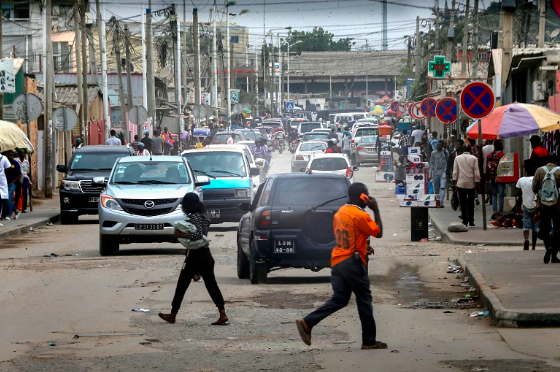Angolan activists said today that the right to demonstrate in Angola is in question and that the regime tends to intensify repression in scenarios of weakening power to protect itself against threats.
In the auditorium of the Pauline Sisters in Luanda, dozens of young activists reflected on the right to demonstrate, with the theme of March 7, 2011.
The date marks an attempt to protest against the government of then President José Eduardo dos Santos, culminating in the arrest of 12 people, including the activist and ‘rapper’ Luaty Beirão and journalists.

Margareth Nangacovie, a lawyer and teacher, said that the right to demonstrate in Angola happens when it is favorable to vested interests, but “it doesn’t come off” if it is by a group of young activists like the ones who gathered today.
“This is proper of an autocratic context where authoritarianism serves to prevent the weakening of power and confrontation with the system,” which, she stressed, was proven by the testimonies heard in the auditorium in Luanda.
“We are in a state where the right to demonstrate suffers serious restrictions and limitations when these demonstrators are not aligned with the dominant agenda,” she pointed out.
Among the audience, a young man, Paulo Evangelista, accused the current president, João Lourenço, of being “more dictator than José Eduardo dos Santos”, who ruled Angola for 38 years.
Still, for Margareth Nangacovie, it is a question of style.
“Some repressive measures, in this context, seem more intense, but I wouldn’t know how to level the repression between one time and another.”
“I think it will progressively get worse because the political conditions of the party itself to maintain itself are also getting worse, the social conditions are getting worse, the economic conditions are getting worse…”
“All this puts a lot of pressure on the regime at different levels, which results in the intensification of fear and the need for the regime to protect itself against these threats,” the university lecturer commented.
In an interview with RFI last week, President João Lourenço considered “the expression ‘repression’ extreme,” stressing that Angola is not a repressive state.
“But as we have all noticed, the demonstrations are not always as peaceful as one would wish. As in the past, the bad thing would be never to have demonstrations; the demonstrations would be considered prohibited.”
“This is not the case, the manifestations in Angola are not forbidden, and proof of this is that every weekend there are manifestations”, he concluded.
Ilídio Manuel, a journalist, who says that he was also in the sights of the Angolan authorities and was not arrested because “it would have been too visible”, regretted that, in the morning, the police had gone to the auditorium to check who would participate in the event, stating that the “strategy is to divide and rule and intimidate”.
“How is it that a country is concerned about activists who are going to demonstrate, but they don’t look at the courts?” he asked, outraged.
Activist and spokesman for the Third Division Intervention Movement, Hitler Samussuku, confirmed the police visit, complaining of pressure due to the holding of the initiative.
“They blackmailed the mothers (of the Pauline Sisters) who started calling me at 7:30 am saying that they had many police officers (nearby) and that police cars would probably show up.”
“But we already know that there is nothing illegal, we were just reflecting, and it fits even as academic reflections”, he said.
He also regretted that the demonstrations are systematically halted, thanks to “well put together” administrative “schemes” that lead the police to show up on the spot to make the protests impossible due to a lack of response from the provincial governments.
“Citizens who want to protest against poverty and unemployment, for the implementation of municipalities, the government doesn’t allow them, doesn’t even allow the gathering,” he said.
For the activist, who ran in the previous elections in the lists of UNITA (Angolan opposition), “the repression of demonstrations is part of the nature of the regime, the word demonstration bothers the Government”, adding that the arrests happen at the place of concentration or the organizers are caught still at home.
“It would be considered polite if the intelligence officers who have been here watching (to learn) to have a better perception of the activists and the demonstrators or the demonstrations,” Hitler Samussuku challenged.
Political scientist Olivio Kilumbo, elected as a congressman on the UNITA lists, spoke about the importance of preserving institutions “necessary to create a new stage after the dismantling of yesterday’s rottenness” and warned that “in an autocratic regime,” those who fight against the regime must know how to adapt their strategies and reinvent themselves, claiming to be pacifists.
Alcides Mulemba, a young man from the Paraíso neighborhood, considered one of the worst in Luanda, said that “nobody is happy with the MPLA”, the party that has ruled Angola since independence in 1975, and said he is “willing to die, so that future generations have a better future”.
In Matias Chipipa’s opinion, young people are being killed “from the point of view of education”, for which he defended the importance of literacy and knowing the laws for the new generations.
These tools should be taken to the communities.
The Civic Movement Mudei and the Third Division Movement organized the initiative.
With information from Lusa

